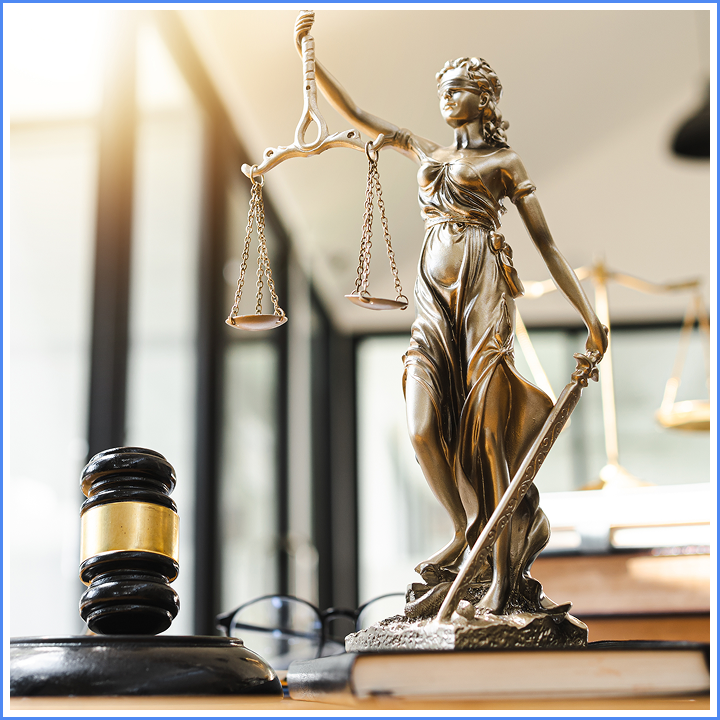
What Is Probable Cause?
Probable cause is a legal term that is often misunderstood. Law enforcement must have probable cause to believe you committed a crime before they search or arrest someone.
Probable cause is a particular and reasonable belief that an individual is:
- committing a crime,
- has committed a crime or
- is about to commit a crime.
Probable cause relies on the information and evidence that law enforcement has about a suspect. Arrests are only legal when there is probable cause of a crime. Without probable cause, criminal charges cannot be brought.
Probable cause can also be the basis for a search warrant. If law enforcement has probable cause to believe you committed a crime, they can ask a judge to authorize a search warrant for your property. However, police do not necessarily need a warrant to search you or your property if they have probable cause to suspect criminal activity.
An example of a warrant exception is “plain sight.” If an officer sees illegal activity in plain sight, then the officer doesn’t need a search warrant to search the person involved.
What Is The Difference Between Reasonable Suspicion And Probable Cause?
Reasonable suspicion is a level below probable cause. If an officer has reasonable suspicion that an individual has committed or is about to commit a crime, then the officer can stop, frisk and even detain that individual. This is known as a Terry stop, based on the landmark case of Terry v. Ohio.
The Supreme Court of the United States defined reasonable suspicion as, “the sort of common-sense conclusion about human behavior upon which practical people are entitled to rely.” New Jersey v. T.L.O., 105 S.Ct. 733, 745 (1985). This means that an officer can make determinations about whether a person is hiding evidence of a crime based on how that person is behaving.
Reasonable suspicion can often lead to probable cause. An officer may not base an arrest solely on reasonable suspicion, however.
Establishing Probable Cause
Law enforcement has several ways of establishing probable cause of a crime. Police can rely on their own perceptions and experience, interview eyewitnesses or involve confidential informants. Probable cause requires an officer to explain the particular facts that led to their conclusion that the suspect committed or is about to commit a crime.
If probable cause is established, then it can lead to criminal charges. Probable cause is often debated and challenged by criminal defense attorneys when police overstep their limits.
The Importance Of Probable Cause
The backbone of any criminal arrest is probable cause. Police officers can make an arrest without an arrest warrant in many circumstances if they have probable cause. When an officer believes they have enough information about suspected criminal activity, they can take that to the judge for an arrest warrant.
If the judge agrees that there is enough probable cause, they will sign off on a warrant. The officer then uses this warrant to arrest the suspected criminal. Sometimes, an officer may make an arrest without a signed warrant if they believe they have probable cause but don’t have the time or ability to seek a warrant.
Who Determines The Existence Of Probable Cause?
Judges review a case to determine whether law enforcement did, indeed, have probable cause. While the police may have based an arrest on what they thought was probable cause, a judge can overrule that determination. If this happens, then the case can be dismissed.
As a defendant, you may use factual or legal grounds to challenge a finding of probable cause. Law enforcement officers may not violate your constitutional rights while investigating your case and must act within the law. Otherwise, the judge may suppress the evidence found by that officer. A judge’s probable cause ruling can also be appealed to higher courts, all the way to the Supreme Court.
Discuss Your Case With An Attorney
A criminal accusation is serious at any level and you should seek legal help right away. If law enforcement did not have probable cause to arrest or search you, I will work to have your charges dismissed. Schedule your free initial consultation with me by calling my Lexington office at 859-254-4035.
Our FAQ
Have questions? We are here to help. Still have questions or can't find the answer you need? Give us a call at 859-254-4035 today!
-
What is Probable Cause?
Probable cause is a legal term that is often misunderstood. Law enforcement must have probable cause to believe you committed a crime before they search or arrest someone.
Probable cause is a particular and reasonable belief that an individual is:
- committing a crime,
- has committed a crime or
- is about to commit a crime.
-
What is a Criminal Defense Attorney and When do You Need One?
A criminal defense attorney represents individuals who are under investigation for criminal activity. They represent clients who might be witnesses in a criminal case. They also represent individuals charged with crimes.
If you or a family member has been arrested or is dealing with a criminal law matter, it is wise to consult a criminal defense lawyer as soon as possible.
-
Questions to Ask a Criminal Defense Lawyer During a Free Consultation
When you need to hire a criminal defense lawyer to represent you, it can be challenging to know what you are looking for. Obviously, you want your lawyer to be experienced, attentive, and personable. After all, who you hire matters. That is why it is so important you are prepared when you meet with an attorney for a free consultation. Knowing which questions to ask and what answers to look for can help you weed out the lawyers who might not be a good fit and zero in on the attorneys who will do an excellent job defending you. But many people who are in search of a lawyer are doing so for the first time. They have never been arrested or summoned to a courtroom before. Knowing where to even begin can be stressful in and of itself. To help you navigate the challenging process of hiring the right lawyer, here are several questions you might want to ask during a free consultation.
-
How Your Criminal History Could Affect Your Current Case
Your prior brushes with the law can have an enormous influence on your life. Once you pay your fines or serve jail time, you will likely have to face the additional collateral consequences of your conviction. Having a criminal conviction can prevent you from getting desirable jobs and living where you would like. What’s worse, your criminal history can influence a prosecutor’s decisions about new charges and can result in harsher punishments for subsequent convictions. If you have legal questions about a current criminal case, seek the advice of an experienced criminal defense attorney immediately.
-
How to Know if You Hired a Good or Bad Criminal Defense Attorney
If you are accused of a crime or you are under investigation for a crime, you have the right to legal counsel. It does not matter whether you face drug crime charges, DUI charges, or weapons charges. The United States Constitution guarantees you the right to consult with a criminal defense lawyer. Never give up or waive your right to counsel when facing criminal charges in Kentucky. Always exercise your right to consult with a lawyer before answering questions or giving the police a statement.


You've Come to the Right Place
-
We Can provide You With Hope In A Dark Time
We will take the weight off your shoulders and help you stand up for what’s right.
-
We Are Known for Our Ability to WinWhen you find yourself on the wrong side of the law, that’s the kind of help you need in your corner.
-
You Can Count on Us to Give It To You Straight
You deserve to make decisions based on facts, and that’s what you’ll get from us.
